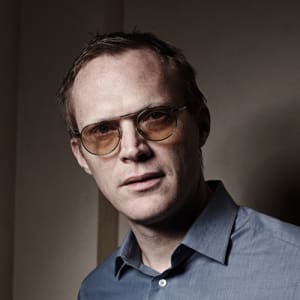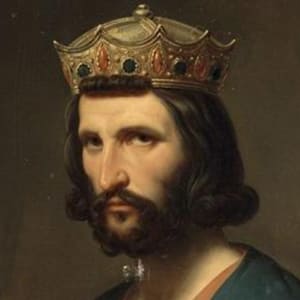
Khalil Gibran Muhammad
Dr. Khalil Gibran Muhammad is a professor, author and media commentator who is executive director of the Schomburg Center for Research in Black Culture.
Synopsis
Born in Chicago, Illinois, in April 1972, Khalil Gibran Muhammad worked in finance before earning his Ph.D. in history from Rutgers University. He worked as a fellow at the Vera Institute of Justice before teaching at Indiana University. A writer and eminent scholar on African-American history, Muhammad became executive director of the Schomburg Center for Research in Black Culture in 2011.
Early Life, Background in Finance
Khalil Gibran Muhammad was born in Chicago, Illinois, in April 1972, with his name inspired by the famous Lebanese poet Kahlil Gibran. K.G. Muhammad is the great-grandson of Nation of Islam leader Elijah Muhammad and son of Ozier Muhammad, a photographer for The New York Times and a Pulitzer Prize winner.
Muhammad grew up in Chicago's South Side and went on to attend the University of Pennsylvania as an economics major. He was employed at the firm Deloitte & Touche LLP with the initial idea that he would reap the financial rewards of working in business, yet found himself moved in a different direction. The circumstances of the Rodney King beating along with the trial of O.J. Simpson inspired the future academic to reflect on his place in the world, as well as on the country's criminal justice system and the treatment of African-American citizens.
"So what drove me into academia was a pursuit of knowledge about how it is that we could live in a society that justified this sort of thing, that obfuscated the reality that black life was cheaper than other forms of life in America," Muhammad said in a 2011 interview with journalist Tavis Smiley.
Becomes Professor and Publishes Book
Muhammad returned to school and attended Rutgers University, receiving his Ph.D. in history in 2004. Upon his graduation from Rutgers, he worked as an Andrew W. Mellon Postdoctoral Fellow for two years at the Vera Institute of Justice, a nonprofit and nonpartisan organization that helps create progressive initiatives for the U.S. criminal justice system. Muhammad then worked for several years as an assistant professor of history at Indiana University in Bloomington, where he also became associate editor of the Journal of American History.
In 2010, Muhammad released The Condemnation of Blackness: Race, Crime and the Making of Modern America, published by Harvard University Press. The book, which won the John Hope Franklin Publication Prize, looks at how racist ideology has shaped the treatment of criminality in urban America among African-American populations.
Appointed Director of the Schomburg
In fall of 2010, it was announced that Muhammad would become head of the Schomburg Center for Research in Black Culture, which is part of the New York Public Library. Chosen unanimously by a nine-member committee that included scholar Henry Louis Gates Jr., Muhammad became executive director in 2011, succeeding longtime library head Howard Dodson Jr.
"I am committed to promoting the voice of black people as they have engaged in the most significant issues of our times," Muhammad said of his new position, according to a statement from Indiana University. "What matters to me is that they and people of the African diaspora are able to articulate why their humanity matters, to show and showcase their contributions to the world, and to have in a sense a history that is validated and respected and made meaningful to humanity at large."
Muhammad has promised to look at a number of avenues to promote the Schomburg, with the goal of being innovative in a digital age and continuing to have honest, complex conversations about the Africand iaspora.
As a husband and father of three children, Muhammad is also looking to build the library's connection to young people as a source of inspiration. "I want to bring in more young people, bring them into the Schomburg's orbit," he said in an interview with the online publication The Root. "I want them to know that the raw materials of our lives—letters to family, postcards from trips, sketches of art that children draw in church to stay awake, crayon markings—are the beginnings of what can one day become the Schomburg's precious assets …"
Expert Programming and Media Commentary
The Schomburg has continued an eclectic, informed array of programming that's included everything from a forum on President Barack Obama during 2012's election night to a 2013 day program on black representation in comic-book culture. Muhammad has also continued his work looking at race and American history, providing media commentary on America's Founding Fathers and their connection to slavery, the prison industrial complex, the Trayvon Martin case, and the use of stop and frisk policies in New York City.




